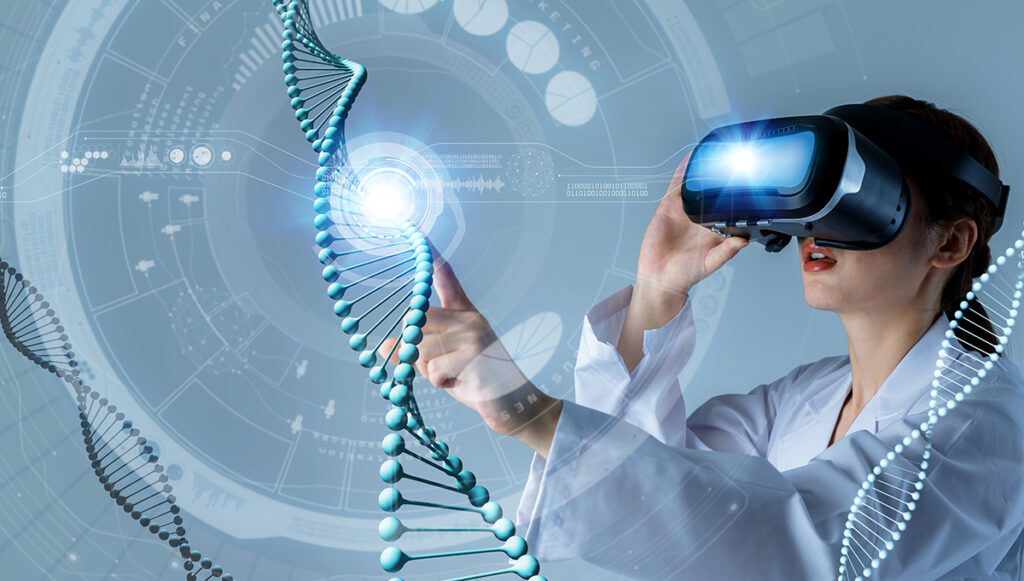The CRISPR-cas9 technology has endless biomedical and biological applications that could forever alter our world.
For the past decade it has caused quite a stir in the scientific community.
But not everyone is as excited.
Specifically, philosophers, skeptics, and average citizens who are concerned with the moral and ethical implications of the ever-advancing technology.
Some of these people are concerned about the dark side of CRISPR’s power to alter genetic code to literally reshape all life in the world around us.
These moral watchdogs are wary of the scientific community’s ability to monitor and ensure its ethical application.

Most of the current research and projects using CRISPR-Cas9 are viewed positively as they aim to help improve life as we know it.
These include attempts at preventing malaria or Down syndrome, creating treatments for cancer, and even creating rapid COVID-19 tests (Ganesin, 2021).
While some are getting excited by the potential scientific breakthroughs, others are asking where the line should be drawn between the ethical concerns of science, and what Rosemarie Garland-Thomson (2021) calls “velvet eugenics.”
Genome editing has always been a field full of debate and mystery, but since the CRISPR-cas9 technology makes the process faster and easier it has regenerated the conversation and pushed it into overdrive (National Human Genome Research Institute, 2017).
One of the events that brought the topic of ethics back to the fore of genome editing was the 2019 revelation that Chinese researcher He Jiankui had edited the genes of two human embryos which were later brought to term as twin girls.
While this was a revolutionary step for science, for many, it crossed an ethical and legal line that prevents human germline editing.
Germline editing differs from somatic gene editing which only affects some cells. Germline editing on the other hand, affects all cells in an organism, including eggs and sperm, and the edit is therefore passed on to future generations.
It is a powerful technology with outcomes that are difficult to predict, and even harder to control. Research into germline editing has therefore been approached with caution and regulated by various policies and organisations across the globe.

The idea of ‘designer babies’ is often at the centre of debate around the use of CRISPR and other gene editing tools. It appears to be one of the more divisive topics and one that illustrates the key ethical debates in the field:
- Some argue that it is our ethical obligation to prevent harmful genetic traits if we can, while others question who should get to make these decisions and if we are ‘playing god’.
- Who gets to decide what is deemed a defect? And isn’t that a slippery slope to eugenics?
- Would the ability to create ‘designer babies’ give children unfair genetic advantages?
- How would that affect the economy, increasing the divide between the ‘haves’ and ‘have-nots’?
- Is this the next step in our evolution or will some people just be creating their own version of a ‘master human race’?
- Would we need different sport categories for the ‘enhanced’ and ‘non-enhanced’ athletes?
- Would you like to pick and choose the aspects that define your children?
There’s no doubt that CRISPR and cas-9 is a powerful tool (perhaps the most powerful tool that humankind has created) with limitless potential to solve a huge array of problems and safeguard our future.
But with access to CRISPR and cas-9 editing tools becoming so affordable that average Janes and Joes can run experiments — is there an effective way to regulate potentially reckless individuals across the globe?
Reference list:
- Ganesin, R. (2021)‘CRISPR cures — the ethics of what’s next in gene editing’ Available at: https://www.dailytarheel.com/article/2021/03/opinion-crispr-ethics
- Sufien,S and Garland-Thomson,R. (2021) ’The Dark Side of CRISPR’ Available at: https://www.scientificamerican.com/article/the-dark-side-of-crispr/
- National Human Genome Research Institute. (2017) ‘What are the Ethical Concerns of Genome Editing?’ Available at: https://www.genome.gov/about-genomics/policy-issues/Genome-Editing/ethical-concerns
